Q&A: This USC physicist wants you to talk about science. His new graphic novel can get you started
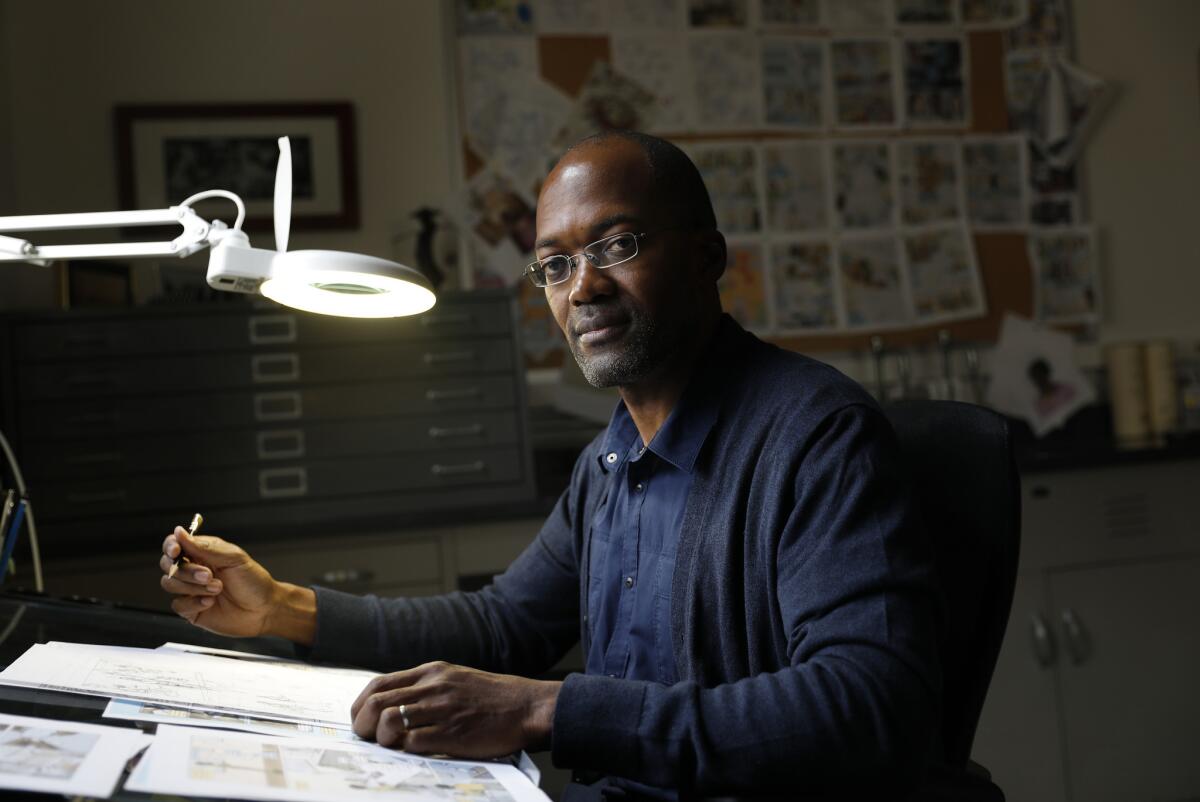
- Share via
Clifford Johnson wants you to talk about physics.
Quantum gravity? String theory? The fate of black holes?
All of it should be discussed, according to the theoretical high energy physicist from USC. That goes for everyone, even those of us who can’t tell a neutron from a neutrino.
“People say ‘Ah, it’s not for me.’ Or they say, ‘I don’t have that kind of brain,’” he said. “I just don’t believe in that.”
To prove his point, he has written and illustrated a graphic novel, “The Dialogues.” It depicts a series of conversations about astrophysics, quantum physics, and the stretchiness of space and time, among other topics.
Characters in “The Dialogues” meet at costume parties, talk on trains and amble through the streets of Los Angeles and other cities.
Some of the characters are scientists, but not all. For example, in one story, two kids set out to investigate why the amount of rice in a pot appears to swell after simmering on the stove.
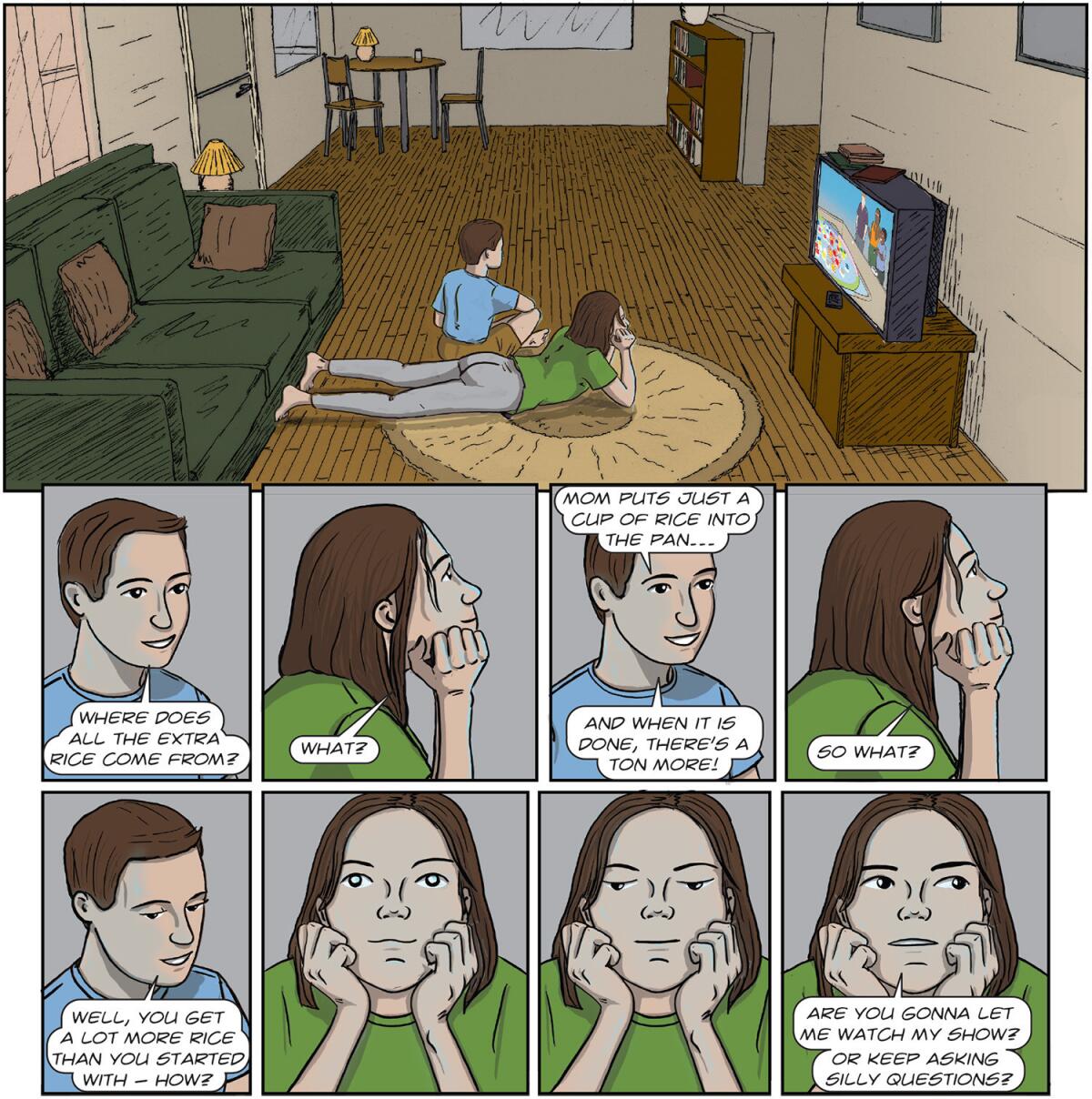
“Science is for everybody,” Johnson said. “You don’t have to have a billion-dollar experiment discovering some new particle to see the joy of science.”
The professor, whose research is focused on things like string theory and gravity, worked on the book off and on for almost two decades. Some of that time was spent teaching himself to draw. Some was used to measure a parking meter or two.
“In some stories, I got carried away on the details,” he said.
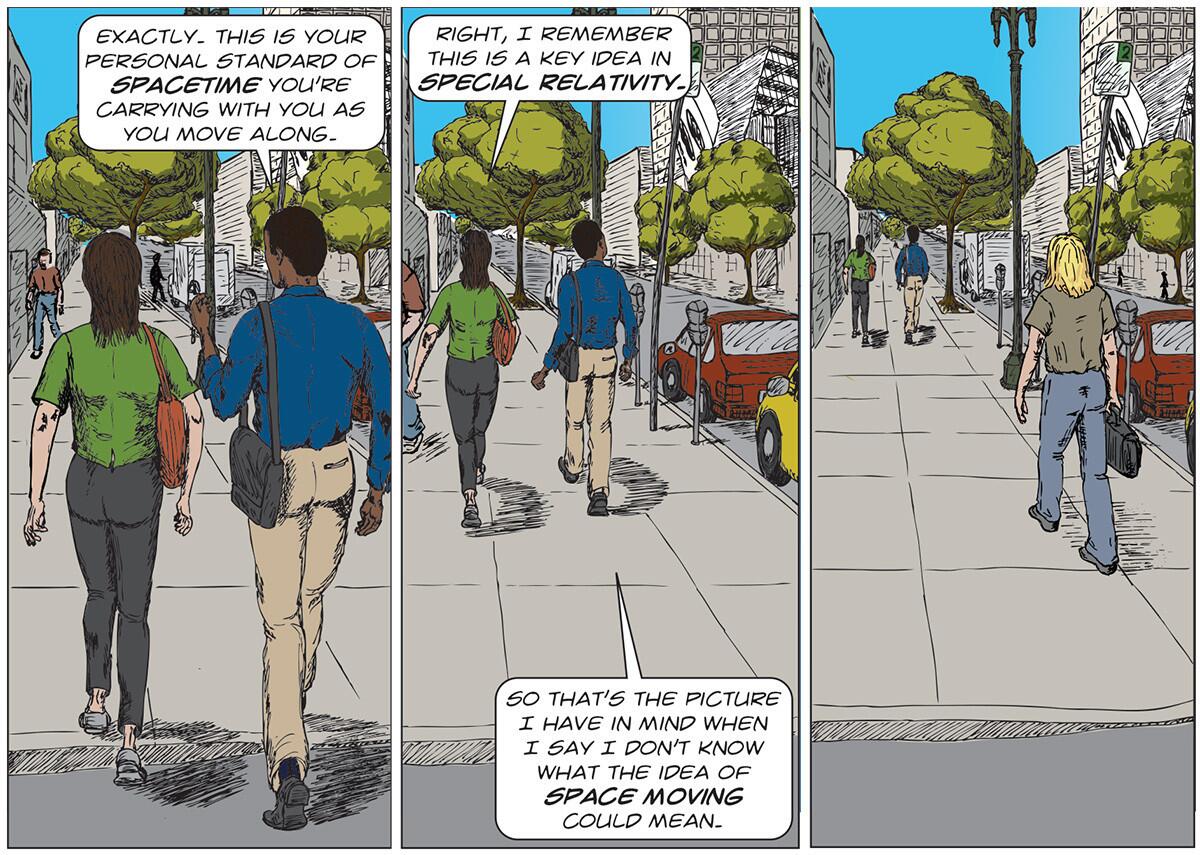
He said the project was inspired in part by the Socratic dialogues of the ancient Greeks. Centuries later, Galileo used the same format to present his scientific ideas.
Johnson hopes that allowing readers to eavesdrop on other people’s conversations about science will inspire them to start talking about science themselves. He discussed his vision with The Times.
Can you describe your research?
I like to say I work on origins questions. So, what’s everything made of? Where does it come from? What is the origin of space and time? These days I spend a lot of my time thinking about quantum gravity, string theory and black holes.
To me, physics feels like the most opaque of the sciences. Do you agree?
I don’t think any particular science is more opaque than any other. Some stuff requires you sitting with it, getting it a little bit, and then getting a bit more. People either don’t have the patience for it, or they think you either get it or you don’t. There are very few things like that — that you genuinely really get it or you don’t.

Do you spend a lot of time talking to non-scientists?
Yeah. I see it as part of my job. I think it is extremely important to be out there in the world as a regular person who just happens to do science.
Sometimes people get intimidated and that’s unfortunate. There is this assumption either that they are wasting my time or I am super-smart and they won’t understand what I’m saying. It’s all unfortunate. We’re all just people out there in the world doing interesting things.
How did a physicist come to write and draw a graphic novel?
I didn’t feel any urgency to do another one of the kind of science books that people in my field are supposed to write. It’s kind of the voice of authority telling you what you are supposed to think about a subject. I wanted to get away from that lecturing style.
You didn’t just write this book, you drew it as well. Was that challenging?
Before working on this book I could sketch, but there is a whole learned skill set you can develop by practicing and learning the craft of drawing in order to raise it to a level for what I did for the book. I have endless notebooks. I sit on the train, I sit on the plane, I sit on the bus and I always have notebooks with me. That’s how I practiced over the many years.

There are 11 conversations, or “dialogues,” in the book. Are these based on real conversations you’ve had or overheard?
Not really. They are in the spirit of real conversations, in that I’ve either overheard conversations that are similar or I’ve had them myself. But I wasn’t sitting there taking notes of conversations I’ve heard.
In one conversation, a character admits to being daunted when she sees an equation. Why do you think so many of us are scared of math?
I think that a lot of stuff we are scared of is because we are told to be. This culture tells us that math is supposed to be difficult, abstract and challenging. And the way mathematics is presented in school is not always particularly helpful.
It has gotten to the point where if I am proposing a book about science, the first thing a publisher will tell you is it is not a good idea to have equations in it. That’s crazy. Equations are such an important part of the language we use to understand the world. How can we talk about what we do if we can’t show what we do?
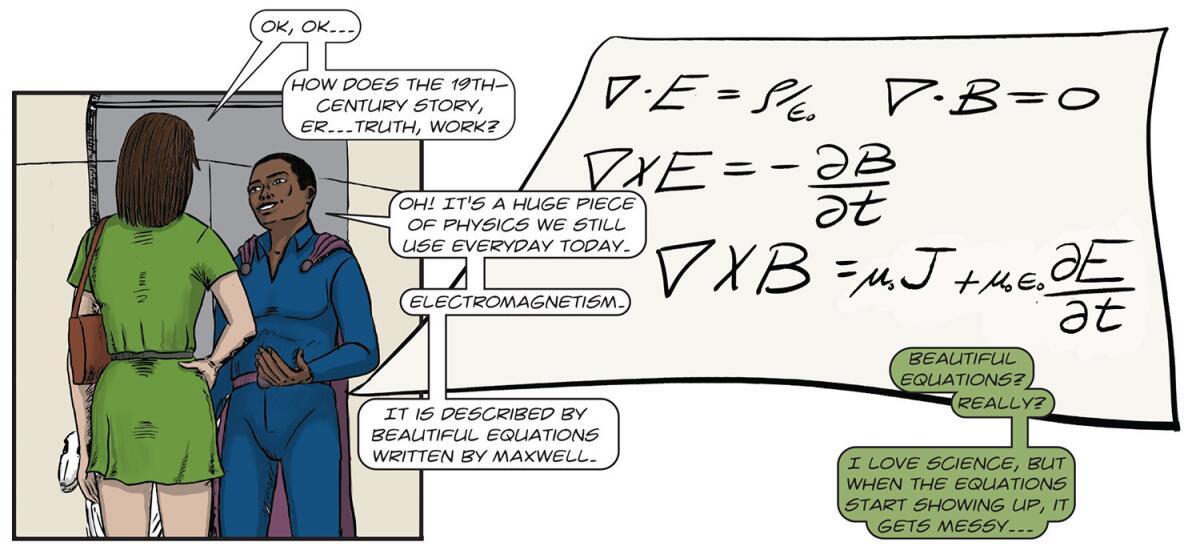
I noticed you managed to slip a few equations into this book.
One of the points of this book was: I’m going to show what some of that stuff looks like and I want you to be still there and not put the book down and run away.
It’s not completely beyond a regular person to get some sense of what these equations mean and why we actually like them. Maybe the first time you look you won’t understand everything, but you get a sense of the role it plays and what it tells us.
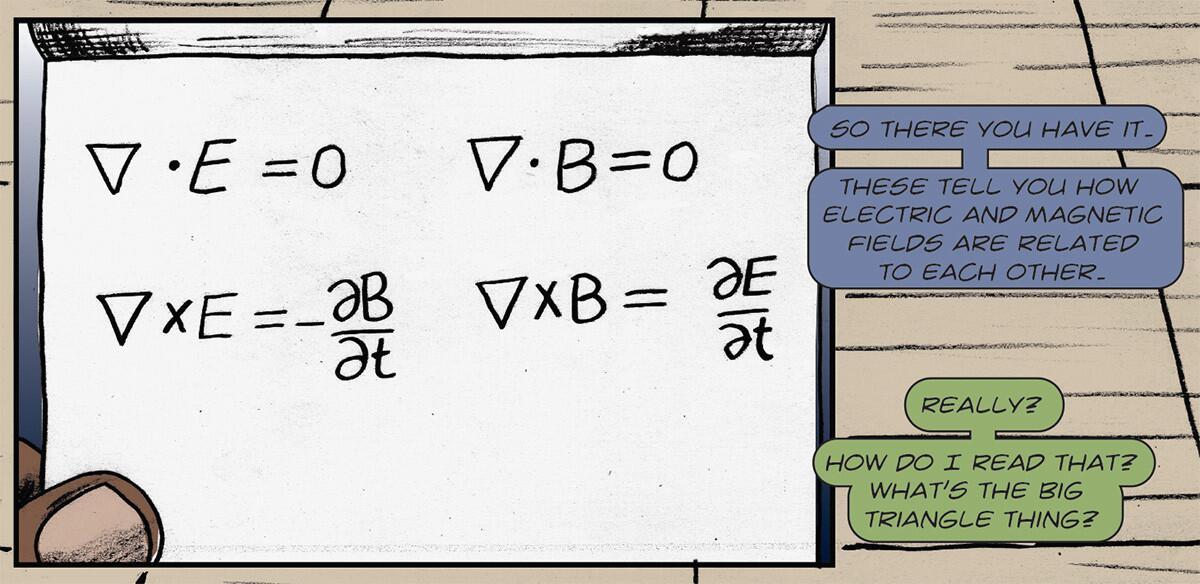
A lot of physicists write books to explain their theories. What was your agenda with this book?
People sometimes think science is a bunch of facts about stuff, but that misses the point. It’s a form of inquiry. It’s a way of interrogating your environment and making sense of it. Everyone has access to science, so let's talk about it. Let’s have conversations.
MORE IN SCIENCE
Banning seven words at the CDC would have at least seven serious consequences for public health
Why the United States is 'the most dangerous of wealthy nations for a child to be born into'
2017 was a hot and disaster-filled year for the United States, NOAA says




